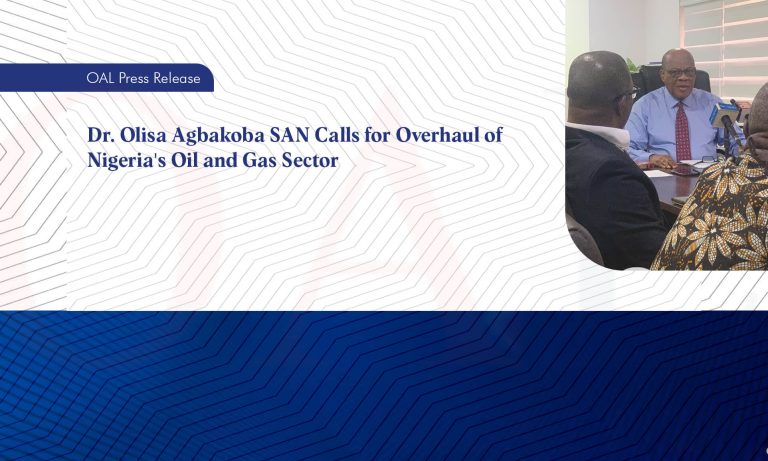
A Guide to Setting Up an Offshore Company in Nigeria

For far too long, you’ve already heard of people forming foreign companies in Nigeria to take advantage of tax benefits. The process of setting up an offshore company in Nigeria is much less complicated than most people believe. It is actually simple and straightforward, and can be completed in a matter of weeks.
This post will walk you through the process of forming an offshore company in Nigeria, from selection to incorporation to Tax Identification to bank account opening & setting up an office, in order to dispel the myth that company formation is a complex and difficult process.
Below are few questions that you must ask yourself when you decide to form your offshore company in Nigeria, the type of company to set up and how you would go about it.
What is an Offshore Company?
An offshore company is one that is formed in a jurisdiction other than the one where the beneficial owner resides. To put it another way, an offshore company is one that is formed in a foreign country.
The concept of an offshore corporation, on the other hand, is not set in stone and will differ depending on the circumstances. Many people are perplexed by the word “offshore,” which is used in contrast to conventional “onshore” businesses.
An onshore business is one that is organized and operates within the boundaries of a country, while an offshore company is one that performs all of its operations outside the borders of the country where it is incorporated. It is not subject to municipal taxes since it is owned and operates as a non-resident corporation, with all of its financial activities taking place outside of the jurisdiction’s borders.
Why Would Anyone Want to Set Up a Company That is Based Anywhere Other Than Their Home?
Most people establish an offshore company in a foreign jurisdiction to take advantage of local laws that provide low or no tax benefits to non-resident businesses.
Offshore jurisdictions tend to draw foreign capital by providing low-tax and pro-business laws to foreign companies and individuals that profit from asset security, anonymity, legal protections, and simple corporate policies, in addition to tax advantages.
How Do Offshore Companies Operate?
An offshore company is a legal entity that is permitted to trade, retain properties, and engage in normal business practices outside of the jurisdiction in which it was formed.
Companies that migrate to or are established in an offshore jurisdiction can avoid paying taxes if their transactions and dealings are limited to outside the country’s borders.
Non-resident companies are incorporated in such jurisdictions because they do not perform financial transactions within its boundaries and are operated by non-residents.
What’s The Intent of an Offshore Company?
Forming an offshore company outside of one’s home country provides extra-security that can only be found when a company is formed under a different legal framework. Malicious people would have a much tougher time breaking into your accounts and properties if you have a separate legal and judicial system.
Offshore corporations act as a separate legal entity from their shareholders or directors and they are regarded as such. The shareholders and the corporation are separated by this division of powers. The company’s activities, debts, and liabilities are not passed on to its directors or members.
All of the company’s debts and financial obligations are separated from its owners, which protects the assets of the company’s owners and directors. Although there is no single standard by which all offshore jurisdictions can be judged, there are a range of characteristics and distinctions that are unique to particular financial centers that are considered offshore.
What Would I Do with an Offshore Company?
An offshore company can be used for the same things as a domestic company, such as opening and managing bank accounts, entering into legal agreements, holding digital or physical assets, conducting transactions, and starting and operating a corporation. Because offshore company differs from a conventional domestic company, such businesses are also known as International Business Companies (IBCs), non-resident companies or foreign entities, since they all refer to the same form of organization.
If you’re looking for asset security, anonymity, or tax avoidance, forming an offshore company offers numerous benefits. Using an offshore framework, you can relocate your company from a high-tax, high-regulation jurisdiction to a place where you can take advantage of local corporate laws and regulations.
Benefits of Setting Up an Offshore Company
Individuals and businesses choose to establish an offshore company for a variety of reasons. Although each offshore jurisdiction has its own unique characteristics, they all share the following characteristics:
-
Privacy:
One of the most compelling reasons to use an offshore corporate structure is that it allows you to isolate yourself from your company, properties, and liabilities. It acquires a distinct legal identity from those who own it as an individual.
Financial transactions and corporate deals will then be conducted under the company’s name rather than under the name of a single person.
-
High Confidentiality:
The majority of offshore financial centers have closed company registries, which ensures that directors and shareholders remain anonymous.
When there is a criminal investigation, no information about the organization or its finances is available to the media. While each nation has its own degree of accountability, keeping your assets and company structure at arm’s length allows you to remain anonymous (depending on the country and your tax responsibilities with the country where you live).
-
Tax Reductions
Most countries that operate as offshore financial centers grant non-resident companies that incorporate in the country a special tax status.
These offshore business structures have a special status that exempts them from paying taxes on their worldwide revenue, capital gains, or income tax in their home country. Depending on the country where you live and its CFC rules, the offshore creation structure, and the country where you incorporate, the tax obligations can be more complicated.
Since tax obligations differ significantly from country to country, it’s crucial to know what you owe before deciding on a jurisdiction. Tax responsibilities are typically determined by the country in which you have permanent residency, and as a beneficial owner of a corporation, you will be subject to taxation in your home country. Although foreign corporations are tax-free, you, as a beneficial owner, will be subject to taxation.
-
Asset Protection
Separating your properties from yourself as a person adds an extra layer of defense in the event of a lawsuit. It’s much more difficult to link you to your assets when you use an offshore structure, whether it’s an LLC, Trust, or Foundation.
When you have an investment or properties, it’s important that they stay separate from you; this means that they won’t be held responsible for any debts you incur as an entity. This is made possible by the structure’s legal right to incur debts/liabilities in the same way as a legal individual does.
-
Legal Protection
Since the offshore structure is situated in a foreign jurisdiction, there is a different legal framework and set of laws that cover the company if it is targeted in any asset search or litigation.
In order to break into properties of an offshore structure, most international offshore countries do not obey local court orders unless there is a criminal investigation with significant proof of wrongdoing. Countries with an offshore financial centre erect major barriers to entry, allowing only the most determined creditors to break into the system.
Are Offshore Companies Right for Me?
Offshore incorporation has a range of benefits that enable companies to gain global values while taking advantage of local conditions.
As borders expand and people’s access to different countries and their markets becomes more open due to the reduction of barriers brought about by increased global connectivity, offshore incorporation is becoming easier and more profitable.
So, the question is: Are You Prepared to Take Advantage of Global Opportunities? If Yes, then learn how to set up an offshore company…
How Do I Set Up an Offshore Company in Nigeria?
As a foreign entrepreneur, you can set up a limited liability company in Nigeria. You have to follow the corporate rules of the new jurisdiction to ensure a smooth and easy launch of the business in Nigeria, including the setup of a foreign-owned corporation in Nigeria.
Before we get into the procedures, it’s important to note that the Nigerian National Parliament has passed many laws governing business in Nigeria, as well as laws governing a fully owned foreign company with foreign shareholders; a few examples are the Company & Allied Matters Act, Immigration Act, Foreign Exchange Laws, and Capital Import Law of the Central Bank of Nigeria.
The Best Steps to Start a New Offshore Company in Nigeria Are as Follows:
1st Step: Company Registration & Getting Your Tax ID Number
The first legal prerequisite for an aspiring foreign business owner or organisation is to hire a competent business lawyer to form a Registered Limited Liability Company (LLC)).
Be informed that an offshore company must have a minimum share capital of ₦10,000,000 and above in order to secure Business Permits and Expatriate Quota permissions from the Ministry of Interior and the Nigeria Investment Promotion Commission.
Actually, you are not paying ten million naira for the registration; they are only figures that reflect the size of the company and also imply that the company’s obligations are limited to the share capital.
For a new company registration in Nigeria, you’ll need the following information and documents:
- Proposed name of the company to be reserved at the Corporate Affairs Commission.
- Share Capital of the Company.
- Division of the Share Capital in percentage ratio.
- Name of the Directors, minimum of 2 and maximum of 50 for a Private company including shareholding.
- Nigeria office address.
- Directors & shareholders’ residential addresses overseas.
- Data page of shareholders and Directors international passport or Government issued means of Identification, or a valid Driver’s License.
- Signing of all the incorporation documents by the directors and shareholders. (Electronic Signatures are submitted for this purpose)
As soon as you supply these information, the lawyer proceeds with document filing & its CAC registration process. Your company registered certificate of incorporation could be ready within 14days except there are queries on the Application by the Corporate Affairs Commission (CAC).
Tax Registration:
It is mandatory to receive a Tax Identification Number (TIN) from the Federal Inland Revenue Service, also known as Value Added Tax Registration (VAT). The good news is that the Nigeria Corporate Commission, in cooperation with the Federal Inland Revenue Service, now instantly issues Tax Numbers automatically along with your Registered Company (RC) number on your Certificate of Incorporation.
2nd Step: Bank Account Opening
With the Tax Identification Number (TIN) in hand, you should open a corporate account for Capital Importation to kick-start the venture. Also ensure that you comply with the laws about the importation of capital or funds into Nigeria as stipulated by the Central Bank of Nigeria Circulars and Regulations.
3rd Step: Company Office Address
It would be critical for you to establish a physical office or at the very least a contact office address in Nigeria at this stage, as it would be needed for Business Permit and Expatriate Quota approvals at the Ministry of Interior.
4th Step: Application for A Business Permit And Expatriate Quota, As Well As NIPC Registration
As part of the Federal Government’s recent Ease of Doing Business in Nigeria initiative, the commercial law firm managing your applications will now route the three applications for a Business Permit, Expatriate Quota, and NIPC registration of your offshore company via the NIPC Desk office in the Ministry of Interior directly to the Minister through the Citizenship and Business Department.
Required Documents:
- Certificate of Incorporation
- Memorandum and Articles of Association
- Current Tax Clearance Certificate;
- Evidence of Acquisition of Business/Factory Building;
- Receipt to Operate in the Oil Industry i.e. DPR Permit (for Oil Service Companies)
- Evidence of Capital Importation e.g. a Certificate of Capital Importation, if Available;
- Partnership/Joint Venture Agreement, the Responsibility Structure;
- Feasibility Study Report (for joint venture companies)
- Evidence of Acquisition of Operating Equipment and Machinery, such as Equipment, Vehicles, Business Machines, etc
- Project Implementation Programme
- Profile of Expatriate Personnel Detailing their Qualifications and Experience, Positions to be held by them in the Company and the duration of each Quota Position.
- For construction companies and Letter awarding construction contract.
If all the relevant documents and statutory fees are paid, the Approvals could be secured within 2 months except there are queries.
Last Step: Residence Permit
This is the final stage of the processes needed for establishing a company in Nigeria; the Directors and Expatriates Employees, including their family members, must obtain a Resident Permit to live and work in Nigeria. The application will be processed by the Controller General of Immigration Service and released under the authority of the Minister of Interior, as specified in the Immigration Act of 2015 and the Immigration Regulations of 2017.
Often, the Nigeria Immigration Service will grant a Resident Permit, also known as a CERPAC passport, to an employee of a foreign-owned firm (Combined Expatriate Resident Permit and Alien Card). Take note that this Resident Permit is only valid for two years and can be renewed after that, and it can only be issued after the overseas owned corporation has obtained a Business Permit and Expatriate Quota Approvals. For CERPAC approval, a statutory fee in the sum of US dollars prescribed by the government must be charged.
We may specify that the law requires special approvals and licenses for a foreign or overseas owned company to operate in certain significant sectors of the Nigerian economy, such as the oil and gas industry, telecom, pharmaceuticals, banking and insurance, and the stock market, which will be authorised by other relevant Government controlled agencies.
As a result, if you want to learn more about the simple and effective ways to establish a foreign-owned company in Nigeria, we always aim to work with business owners to decide the right company to fit their business goals and needs in Nigeria.
Taxation of an Offshore Company in Nigeria
The Companies Income Tax Act (CITA) is the primary law that regulates the taxation of companies in Nigeria, with the Federal Inland Revenue Services (FIRS) in charge of its administration (FIRS). A Nigerian corporation is taxed on its worldwide revenue, while a foreign company is only taxed in Nigeria on profits due to its Nigerian operations. There are legal concerns about what a foreign company can and cannot do in Nigeria without first forming a Nigerian corporation.
Some scholars believe that there is a conflict between Section 54 of the Companies and Allied Matters Act, which states that any foreign company (except those exempted by Section 56 of the CAMA) intending to carry on business in Nigeria must register a company in Nigeria, and the provision of the CITA, which states that it is not necessary to register a company in Nigeria.
Non-resident entities, also known as foreign companies, can earn income in Nigeria in two ways, which will be briefly discussed below.
1. Passive/Investment Income
This strategy allows international companies to raise money from dividends, interest, royalties, and rent, among other things. The CITA imposes tax in this case by withholding tax deducted at source by the Nigerian payer as the final tax. Foreign companies that make money through this channel do not need to have a physical presence in Nigeria and therefore do not have to worry about tax filing requirements. However, they must file and receive a Tax Identification Number (TIN), without which the Nigerian payer would be unable to remit the withholding tax deducted.
2. Active/Business Income
Foreign companies that receive money through this method must register for tax and file full tax returns in the same way that Nigerian companies do. Because of the difficulties associated with the legal obligation of filing full tax returns, offshore companies doing business in Nigeria used the considered benefit basis to prepare and pay their income taxes before July 2014.
International companies were only expected to apply the deemed profit tax calculations along with a statement of the turnover generated from Nigeria when filing returns under the deemed profit regime. Section 30 of the CITA requires that a schedule of withholding tax withheld on income, be given to support a claim for tax credit.
In 2014, the Federal Inland Revenue Service (FIRS)’s Transfer Pricing Division released a regulation requiring foreign companies with income from Nigeria to provide audited financial statements, tax computations, and other related details in their tax returns beginning January 1, 2015, in accordance with Section 55 of the Companies Income Tax Act (CITA).
Finally, the legal obligation of filing full tax returns is not without its difficulties, the most significant of which is determining actual expenses incurred abroad and capital allowances related to the Nigerian activity in order to determine the actual profit to be charged.
This latest guideline from the Federal Inland Revenue Service has posed a slew of concerns, including questions about feasibility, and has left a lot of questions unanswered. In light of the above, it has become important for the Federal Inland Revenue Service to resolve certain issues concerning foreign company taxation in order to avoid ambiguity and uncertainty, especially on the part of foreign companies.
In Conclusion:
Offshore refers to the management, registration, conduct, or operation of a business in a foreign country, often with financial, legal, and tax advantages.
For clients who choose to participate in international financial exchange and investment activities, an offshore company has a range of benefits, depending on the offshore jurisdiction: Ease of incorporation, low fees, no foreign exchange controls, high confidentiality, and tax advantages are all advantages.
As a business owner, one of your greatest fears is that since you are not present at all times, your offshore company will get into serious trouble and you may not be able to save it on time. So if you want to start & securely manage an offshore company in Nigeria, you’ll need to find a law firm who can assist you.
At Olisa Agbakoba Legal (OAL), we will walk you through the whole process and show you how to set up your own offshore company while keeping it fully secure. We can assure you that if you take your offshore company seriously and devote enough time to it while taking advantage of our legal assistance, you will be able to grow your company, increase your sales, and become a true tycoon in Nigeria.
OAL Firm assists international companies and individuals with company registration and business setup in Nigeria on a regular basis. In addition, the firm provides capital importation and bank account opening guidance.
Written By:
Josephine Uba
Lead Digital Strategist, Olisa Agbakoba Legal
Author



